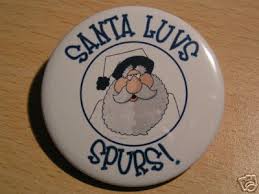A mate started a gig at a company that bigs itself up as innovative.
After he’d been there a few weeks, I asked him what he thought and he said, “I think they confuse innovation with novelty.”
For some reason his answer came to mind after the death of Johan Cruyff.
Cruyff was a football genius who died last week following a battle with cancer.
One of the first and probably the best exponent of total football.
Circa 1970, total football was revolutionary because it treated space as an element that’s just as important as the ball.
As a player and later a manager, Cruyff thought about football almost in terms of design thinking.
Today every team tries to create space when they have the ball and close it down when the opposition has it.
At the 1974 World Cup, Holland was playing Sweden.
In the 23rd minute Cruyff, was one-on-one with Swedish defender Jan Olsson.
Feinting to pass, he gently touched the ball behind his own standing leg, swivelled 180 degrees and accelerated in a blur of orange.
A collective gasp swept around the stadium as Olsson flailed backwards into a space, which surely hadn’t existed a moment ago.
https://www.youtube.com/watch?v=U1k7DGqRF5g&rel=0
The move was more like a magician’s trick and the crowd was stunned.
It was promptly christened the Cruyff Turn.
And swiftly became mandatory for any aspiring top-flight footballer.
You could say it marked the beginning of modern football.
Just as surely as DDB’s Think Small ad, marked the beginning of modern advertising.
Helmut Krone famously devoted 80% of the page to white space and the result was equally simple and brilliant.
Both Cruyff and Krone saw where others couldn’t see, they worked in the spaces in between.
As Bill Bernbach said, “Creating advertising is very simple but creating simple advertising is the hardest thing there is.”
Actually Bernbach never said that.
Cruyff said it, but about football, “Playing football is very simple but playing simple football is the hardest thing there is.”
It probably fooled you because it feels like something Bernbach would have said.
And one thing he most definitely did say was, “Good advertising builds sales. Great advertising builds factories.”
Which is echoed by Pep Guardiola’s comment referring to Barcelona’s Camp Nou stadium, “Cruyff built the cathedral; our job is to maintain and renovate it.”
There was advertising pre-and-post Think Small.
There was football pre-and-post the Cruyff Turn.
Nothing would—or could, be the same again.
You couldn’t confuse either with novelty.





